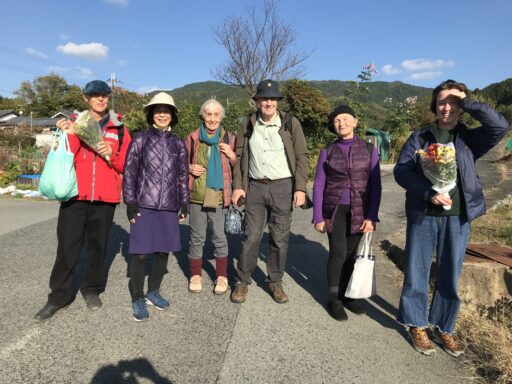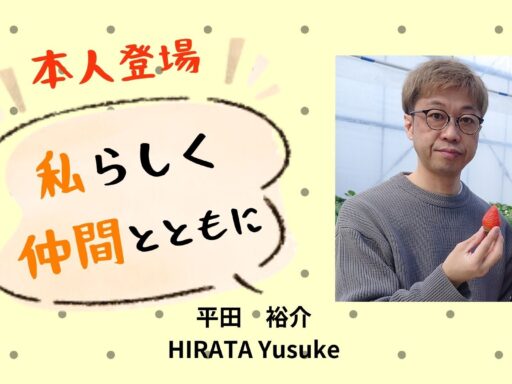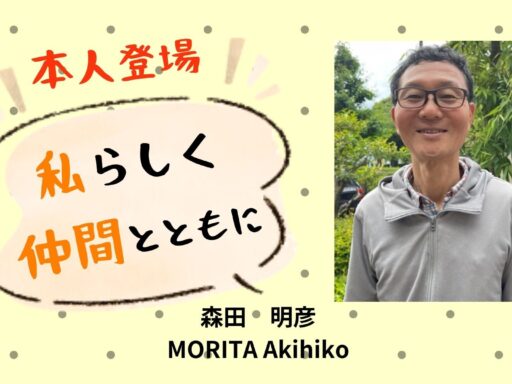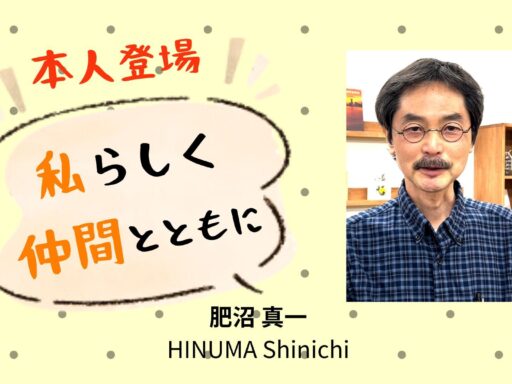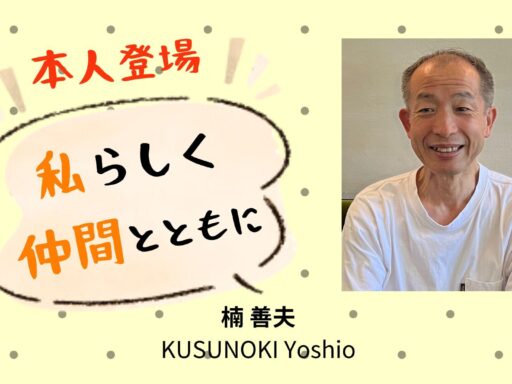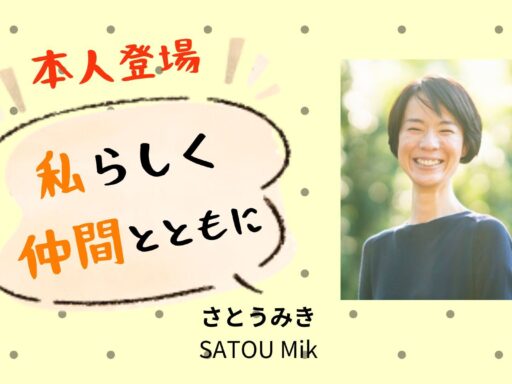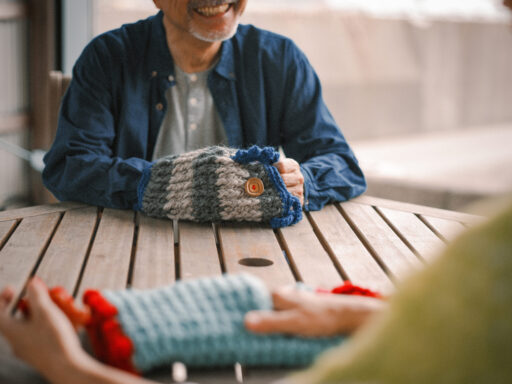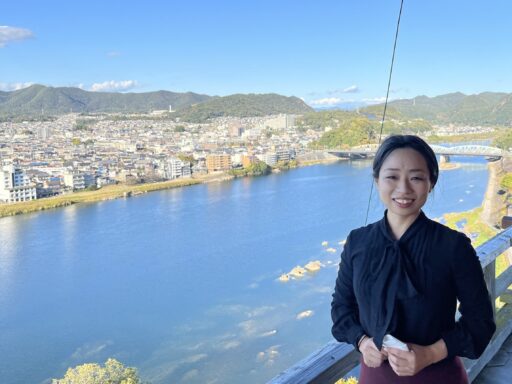The essay about my carer’s life “ Mom’s taste “
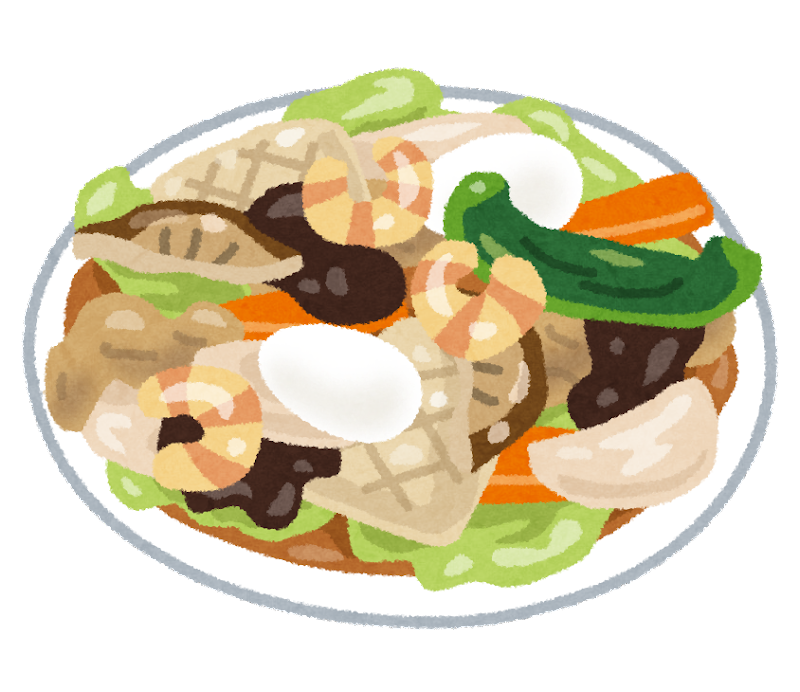
※Mr. Fukui, who is a member of AAJ and chose to move alone to take care of his mother, summarized his daily life as a caregiver in an essay and applied to us, so we would like to introduce it to you all. We,” The Japan Dementia International Exchange Platform”, accept a wide range of manuscripts . Please also send us your manuscripts about your caregiving experiences.
「Mom’s taste」
4 years have passed since I retired from my corporate job at the age of 62 and left my wife and two cats at home in Sapporo(Hokkaido) to live alone as a caregiver to support Mom who lives alone in Kumamoto(Kyushu). She is 95 years old this year but she has a good appetite, talks a lot, and is in good health, except for the progression of Alzheimer’s disease….
She remembers the past, but what she did or said today is quickly erased from her mind. The number of conversations she has with me has gradually decreased to a few patterns. Moreover, she forgets her acting what she just said, so the listener is forced to endure the same conversation over and over again. But from her point of view, it is all about the first conversation. If you are thinking, “Why don’t you just smile and let it go,” you are mistaken, because no one can keep that up for four years. Nowadays, I can only ignore them, laugh at them, or say “ah-ha-ha” or “um” or “ah” in response. In addition to this, my aunt’s personal history has become a mess, and even her daily routine of “soaking up memories on the porch” is a distortion of history, with dead people coming back to life, married people becoming single, and other such oddities.
However, it is also true that I have been able to take advantage of the situation of Mom. I live in an apartment just three minutes by bicycle from the 50-year-old “Tomi-chan Base,” where Mom lives, and when I leave the base in the evening after cleaning up, I always write to her, “I have to go out for an errand. Whenever I leave the base in the evening after cleaning up, I always leave a note saying, “I have to go out on an errand and will be back tomorrow afternoon. As long as I dispose of the note before Mom wakes up, the day begins without incident with a “Ohayo“. When I leave Tomi-chan Base in the evening, we exchange one pattern conversation.
Mom: “Are you going to ◯◯?
Me: “Yes.
Mom: “Are you going home tomorrow afternoon?
Me: “Yes.
Mom: “Then I’ll make lunch. What do you want?”
…From here on, it’s all about application. Sometimes my response is “Oyakodon, please”, sometimes “I want curry”, or some other variation. This seems to be a good brain training exercise for Mom, and after a few seconds of silence, she usually makes an excuse for not being able to make it. In the case of oyakodon, it might be, “I didn’t buy any chicken,” or in the case of curry, “I ran out of curry powder. Yes, the story makes sense.
But it seems that some items have become difficult to remember what the dish itself with that name is. The other day, when the same pattern of conversation began, I twisted the dish I wanted her to make “Happosai(Chop suey)” and although she could hear my voice, she seemed unable to connect the sound with the meaning of the word.
Me: “Happosai”.
Mom: “What? Hanpen(Pounded fish cake)?”
Me: “Happosai”.
Mom: “Anpontan(Fool)?”
This exchange goes on for a while. Finally, she remembered!
Mom: “Happosai, then if I put some sauce on vegetables, it will make them finished…”
Though it may not be real.
However, sometimes such a stupid conversation, without my knowing it, can pinpoint and stimulate my memory center. Yes, I remembered “Mom’s taste”.
When I was in the fourth grade of elementary school living with my family in Osaka City, I had a classmate named Hiroshi Amarube (a pseudonym). He was a transfer student from the new school year, and although we were not very close, we played together normally. He was a cheerful boy with slightly obese, large eyes, and a charming face, who talked a lot. I visited his house several times. It was about a 15-minute walk from my house, and it was a “cultural residence” in Showa-era vocabulary, in other words, a two-story row house. I cannot remember the layout of the house clearly, but I can remember that his grandmother, who was recuperating from an illness, was always sleeping in her bed on the second floor. But I can’t remember why I went all the way up to the second floor where his grandmother slept. I wonder if it was because there was a children’s room…. Oh yes, Amarube-Kuhn had a younger brother. He was a handsome, fair-skinned boy with a completely different face from his older brother. Why do I remember such a thing? It is probably because I was quite surprised at how different the two of them were.
Most of my friends around me at that time had mothers who were housewives, and I had to be a little tense when I went over to their houses to greet them properly or to say “thank you” when I received sweets. But I had never met Amarube-kun’s mother at home. I remember that it was Amarube-kun who served me snacks at home, which was also a bit of a surprise to me, and on the contrary, I was envious of him.
We even played together at home. I wonder what we did…did we make plastic models or play board games? Late in the evening, my mother asked Amarube-kun if he would like to have dinner at our house. Amarube-kun happily agreed to eat. When my mother asked, “Amarube-kun, do you want me to call your mother?” He answered “No need. She’s not at home”. I had told Mom about the situation at his house before. She herself never knew her father, and her mother passed away at the age of 40. Perhaps because of this, she is always sympathetic to my friends who are concerned about their family environment. She would say, “Why don’t you let Amarube-kun come over to our house sometime? We could have dinner together…”
After a long wait, we were served “Happosai ” for dinner. My memory of the taste is vague, but the presence of kikurage mushrooms and quail eggs in the dish emphasized the sense of hospitality that Mom had extended to her young guests. At least that’s how I felt. The dish was served on a slightly pretentious deep dish. It was a curry dish with a brown-toned pattern that looked like a paisley or ivy regularly entwined. They were arranged on our dining table, and warm steam was rising from them. I have a clear memory of the place, Amarube-kin’’s happy, joyful, and even excited expression, the chatter, and the happy atmosphere. This might be called “delicious”… Thank you very much for your delicious meal, Mom.
I was with Amarube-kun for a few months, and before the second semester started, he moved to a town in Osaka Prefecture, near Wakayama Prefecture. Some time later, I received a letter from Amarube -kun saying that he was doing well in his new town. I forgot his last name written there as the sender, but it had changed to something not unusual.
At 5:00 the next morning after reviving old memories, I returned to Tomi-chan’s base from my apartment as usual and searched for a piece of paper, usually found around the kitchen table, to do the routine “dispose of a note” before Mom woke up.
In the blank space in the lower right corner of it, the word “Happosai” had been left in pencil.
Written by Fukui
Translated by Masako Amemiya, Yuko MAKINO (Staffs)





